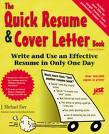Cover Letters-Increase Their Impact

Most interviewers will tell you that without a cover letter; your resume does not stand a chance of being reviewed; so even when job offers request resumes without stressing cover letters take the initiative and send one. The cover letter is like a briefing. It tells the interviewer a little about your goals and why they should hire you for the position.
So, since job advertisements don’t always ask for a cover letter along with your resumé, you should know you are always expected to send one. Some companies won’t even look at your resumé if it’s not accompanied by such a letter. After all, resumés and cover letters represent your first encounter with prospective employers and furnish the criteria based on which you may be selected for a job interview. Consequently, you should not write a cover letter in haste, but pay attention to every detail when crafting one.
While they may be required to follow certain standard patterns, you do have some freedom as to the style, so you should try to give your resumé and especially your cover letter a distinctive look. You’ll want to draw the reader’s attention to your letter and to make them remember it after they’ve read it. Here are a few tips you might find useful.
The first thing you can personalize in your cover letter is the address. “Personalize” has a double meaning here: firstly, it should serve the above mentioned purpose of distinguishing your letter, and secondly, the person reading it should really feel that it is addressed to him or her. Addressing people by their names is likely to have a stronger impact than a plain “Dear Sir or Madam”, as it grants more importance to the reader. Even if you are writing in response to a blind ad, you can sometimes find out the name of the person in charge of hiring if you do a bit of research on the company.
However, it is ultimately the content of your letter that will have the strongest impact. Be sure to stick to the point: unlike your resumé, a letter of application is not a general purpose document. It is supposed to highlight only that part of your background, skills, credentials and experience that is relevant to the particular position you are applying for. Rather than simply listing them and providing some schematic comments on them, as you would do in a resumé, you should expand on them in the cover letter and present them in an elegant manner. While you do have to maintain a formal style, spend some time working on the phrasing so as to make it reveal those traits of your personality that you want to discretely advertise: your cover letter should be not only to the point, but also pleasant to read.
One more piece of advice: Many people believe that a handwritten letter is likely to make a better impression on the reader. The explanation is that your handwriting can convey a lot of useful information about you.
Remember, personalization is what can makes your letter stand out, thus increasing your chances of being short-listed.
Comments